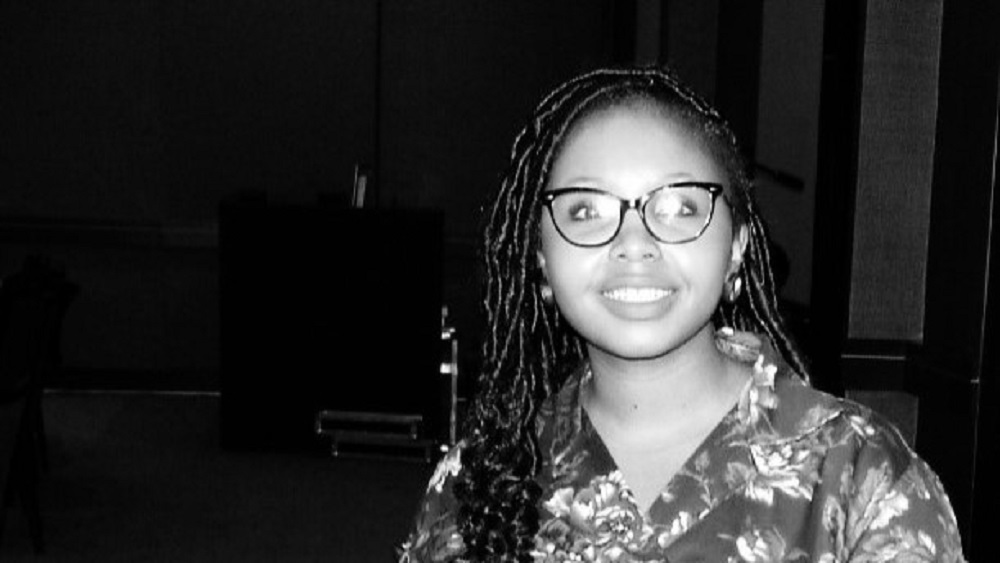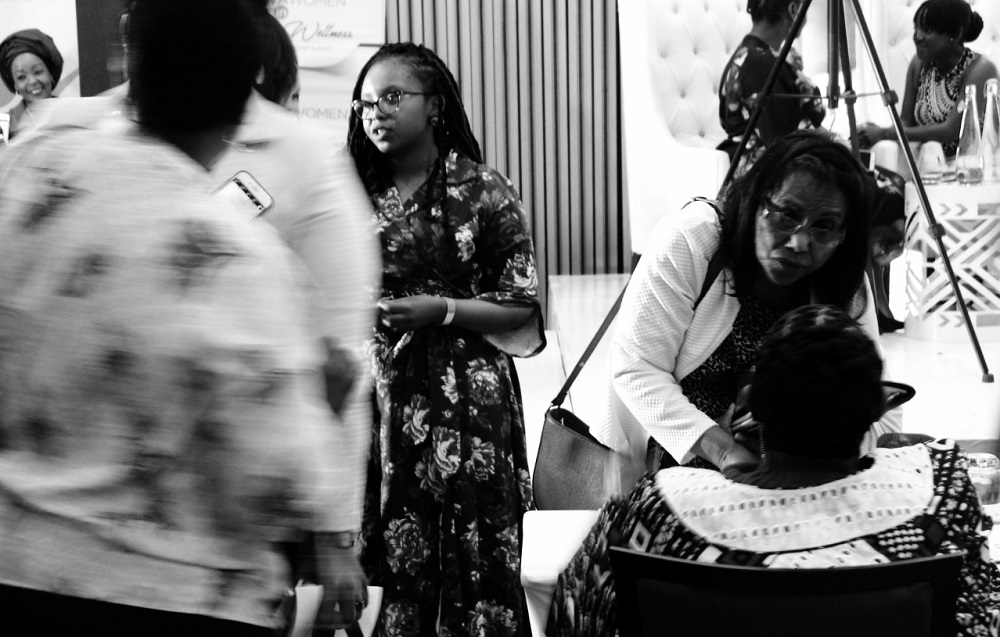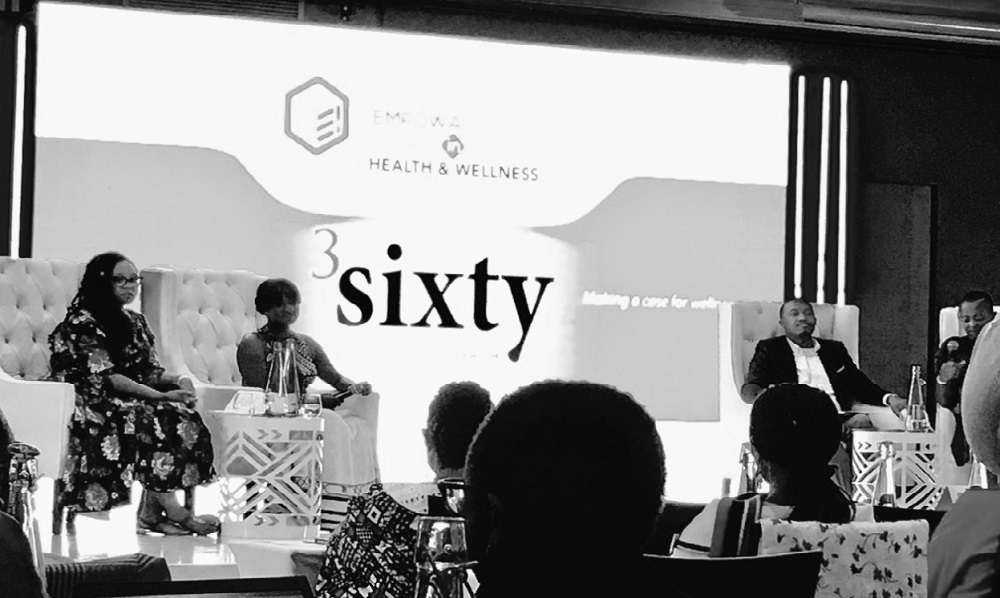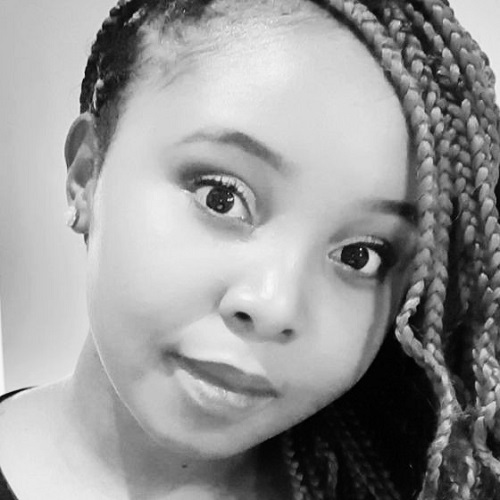
JMS alumna, Lethabo Sekele, currently serves as the Strategic Support to the General Secretary of NUMSA (Irvin Jim), is the Non-executive Director at Bala Books, was previously a Member of the Board of Trustees at Medshield Medical Scheme, and has recently just founded the WorkWell Workplace Mental Health Programme. Inspired by her own ADHD (Attention Deficit Hyperactivity Disorder), Depression and Anxiety diagnosis and the struggles she faced in the workplace in light of this, Lethabo founded WorkWell to help professional environments better support and embrace neurodiversity.
In this interview, Lethabo opens up about how she felt she was “dying inside” in the workplace as someone who struggled to open up about her mental health disorders. She provides useful insights for graduates with mental health conditions who are entering the workplace, as well as offers strategies for employers to cultivate a supportive company culture around mental health. In addition, she reflects on how the skills she gained from studying Journalism and Media Studies at Rhodes University have been invaluable to her career as a director, strategist, and businesswoman… and how a particular JMS lecturer’s bare feet changed her life! Lethabo encourages us to change the way we think and speak about mental health conditions not only in the workplace, but in the media too, and shows us how we can all work to shift the narrative.

Lethabo Sekele pictured at the 2019 Health and Wellness Summit in Sandton, Johannesburg, where the theme was Mental Health. Photo by Bianca Chihava.
JMS: You are currently employed as the Strategic Support to the General Secretary of NUMSA (Irvin Jim), are the Non-executive Director at Bala Books, and was previously a Member of the Board of Trustees at Medshield Medical Scheme. These are not the types of jobs that journalism graduates typically envision for themselves, so we’re curious about what these titles entail and how you have applied your journalistic skills to this field?
Lethabo Sekele: I must first clarify that although I came to Rhodes University to study Journalism and was registered for a BJourn, I did not graduate in Journalism but I did a triple major with Journalism and Media Studies as one of my majors. I unfortunately had to let go of Journ in my final year primarily due to the fact that I had taken on a lot more than I could handle and Design pretty much kicked my butt mid-year. My work with NUMSA entails a lot of writing, assisting with drafting constitutional structure reports, and policy submissions. Board membership entails providing the strategic oversight required to ensure that organisations reach their strategic objectives and holding members of the executive team accountable for the execution of the board-approved strategy. In both instances, one has to be a good writer, be detail and fact oriented, have great communication skills, and be bold enough to ask uncomfortable questions. These are skills I learnt very early in JMS 1. I think journalists can make exceptional board members.
JMS: In 2019, you founded the WorkWell Workplace Mental Health Programme. Could you tell us a bit more about the programme and why it was founded?
LS: The programme was inspired by my own diagnosis with ADHD, Depression and Anxiety. The ADHD diagnosis particularly came as a shock because I was 30 years old at the time and here I am being diagnosed with a disorder that conjures up images of restless toddlers bouncing off the walls. What was more debilitating, apart from the conditions themselves, is feeling like you cannot share your struggles with colleagues. Especially because of the stigma around mental health and the language we hear people using. I made a decision to keep it to myself but it became more and more obvious that I was struggling: I could not complete important tasks, I went days without reading emails which resulted in missing important meetings, I was (and kind of still am) always late. No matter how hard I tried, how many reminders I set, I just could not get it together. When I did eventually start taking medication, it made me lethargic, the ADHD medication gave me heart palpitations. It was terrible and I could not share with my boss and other colleagues as to why I was ‘not on top of things’ and why my work quality was deteriorating. I began to think about how many other people were like me, struggling with mental health in their workplaces but felt like they could not open up because of stigma or feeling like their workplaces would not be supportive. That’s when I conceptualised WorkWell.
JMS: What has made mental health in the workplace environment in particular such an important topic for you?
LS: The proverbial ‘dying inside’ and feeling like your job is on the line. You are stuck between a rock and hard place because if you disclose your mental health struggles you run the risk of coming across as incompetent, incapacitated, unreliable, unpredictable, lazy, etc. On the other hand, if you don’t disclose, you just become frustrated and eventually everyone else becomes frustrated with you because on some days you are on top of your game and some days you aren’t. The inconsistency can be a nightmare for colleagues but when everyone knows exactly what you are dealing with, they can help and become more empathetic. WorkWell is also aimed at educating senior leaders and managers on the different mental health conditions that exist and how they manifest themselves in the workplace. This makes offering support easier for colleagues and superiors.
JMS: You have brought on board the likes of psychiatrist Dr. Mashadi Motlana, Dr. Mothomang Diaho, and a few of your other colleagues and business partners into WorkWell. What has the process of setting up a programme of this magnitude been like?
LS: On a personal level, it has been particularly emotionally draining; especially having to confront the reality of how my brain works and researching my conditions. I became painfully aware of many things that did not make sense many years ago, such as why I changed my MA supervisors four times and ended up not completing my MA. I wish I had known sooner what was happening and gotten the help that I needed. On the flip side, it has been so fulfilling because it is fascinating learning about neurodivergence/neurodiversity and the strengths or superpowers of some of these conditions. On the business side of things, it has been a challenge raising startup funds but we have been blessed to have professionals like Jade Wyngaardt who has dedicated her time and skills to this project at no cost. She does all the digital and creative work pro bono simply because she just believes in what we are doing.
JMS: And what has the response to the programme been from corporates?
LS: One of the women from a prominent company actually said that the programme was “too progressive” and that SA is not ready for it! However, I think the COVID-19 pandemic has laid bare the mental health struggles that employees have always had, and this means more companies are willing to listen and take this topic seriously.

Lethabo Sekele (far left) on a panel at the 2019 Health and Wellness Summit in Sandton, Johannesburg, where the theme was Mental Health. Photo by Bianca Chihava.
JMS: You are in the process of writing and editing a WorkWell coffee table book for corporate workplaces. Could you tell us a bit more about this project and what prompted it?
LS: The publication is an extension of the WorkWell programme and aims to continue our education and awareness project. We want to tell stories of individuals living with mental health conditions but doing exceptionally well in their career fields. In the inaugural issue we feature two Rhodes alumni, one who is a globally recognised author and another is the head chef of an upmarket restaurant in Melrose Arch, Johannesburg, and is living with bipolar disorder. The publication also has a broader socio-political agenda which is to talk about the politics of mental health, the economics of mental health, etc.
JMS: How do you think graduates with mental health disorders can prepare themselves and find support as they make the often-stressful transition from university to the workplace?
LS: I think a lot of the literature or articles out there are too centred around what individuals can do e.g. self-care, meditation, yoga, etc. However, graduates and employees can only do so much; organisations also need to meet them halfway. The beauty about the era we are in, and especially how millennials and Gen Zs approach the workplace, is that they are uncompromising about what they need and want from their employers. I would advise graduates living with mental health conditions to be uncompromising and state what they require in their workplaces for their psychological safety and wellbeing.
JMS: If employers wanted to give more attention to the mental health and wellbeing of their employees and colleagues in the workplace (especially during a pandemic), what is the first piece of advice you would give them?
LS: Create an environment that opens-up dialogue on mental health in a way that is non-judgmental, non-stigmatising, and most importantly demonstrates a genuine attempt to understand and to provide support. This means avoiding a tick-box exercise because people know when there is no genuineness behind our efforts. Also avoid outsourcing this task. The beauty about WorkWell is that it equips organisations to develop internal, sustainable strategies instead of “workshopping” people to sleep.
JMS: What do you think is most lacking and/or needed in health/mental health journalism in South Africa today?
LS: I think just shifting the narrative but without glamourising mental health conditions. We need more stories of hope and stories which demonstrate a full understanding of the positives and negatives because that is how we will break the stigma. As previously mentioned, I think it is important to start viewing mental health as part of the broader conversation on diversity, equity and inclusion. People with mental health conditions are neurodivergent individuals in a neurotypical world - some of the most gifted and successful individuals are living with conditions such as ADHD, autism, bipolar etc. We are just differently abled, and the world needs to catch up! There is way too much negative content out there which portrays individuals with mental health conditions as social pariahs, unhinged, dangerous, unemployable, etc. There is very little compassion in how we report on mental health. The ongoing case of SA attorney, Darren Sampson, who suffers from bipolar disorder is a recent example.
JMS: When you envision a working environment that prioritises and supports mental health, as well as accepts the diverse mental health conditions of their employees, what does this workplace look like? And is there an existing company that is leading the way in this? If so, which one is that for you?
LS: For me this is an organisation that treats the workplace as a sanctuary where work can also be an escape (unheard of right). A place that also makes the effort to understand my needs and finds ways to ensure that I can thrive and produce even better results. This is a place that understands all the parts that make a whole human being and understands the things that matter to me, and nurtures and encourages those.
Google for me still stands out. Google has a portfolio specifically for mental health (Mental Health Programme Director). They are really pioneering the future and direction of Human Resources and its role in employee wellness. The fact that they have a fulltime portfolio specifically for mental health speaks volumes for their employees in terms of communicating that their mental health really matters.
JMS: Last, but not least, what is a standout memory from your time as a Rhodes Journalism and Media Studies student? (Good, bad, or ugly - we don’t mind).
LS: Oh man! My very first tut with Rod Amner where we spoke about race. It was a very uncomfortable conversation hearing everyone’s biases and ‘inherited’ racist views. It was the longest tut of my life but also very life changing because it solidified the fact that I was at the right institution and there was no way I would leave Rhodes the same person I arrived as.
Another defining moment for me was my first lecture with Brian Garman, not because of the content of the course but he walked into the Arts Minor venue barefoot. I thought that was the coolest thing and thereafter, I spent a good two years walking barefoot on campus. I just remembered how weirdly cool he was, so comfortable in who he was, he was not ‘lecture-y’. In that very effortless way of being himself he inspired me to get out of my shell and unashamedly be myself. His bare feet changed my life!
For more information about WorkWell visit: http://work-well.co.za or email info@work-well.co.za
Lethabo Sekele’s full bio

Lethabo Sekele is a business-woman and founder of the WorkWell Workplace Mental Health Programme which is committed to fighting mental health stigma in the workplace. She is a Certified Director through the Institute of Directors in Southern Africa (IoDSA) and holds a BA (Honours) from Rhodes University. She also holds a certificate in Global Health Delivery and Governance from Harvard University’s, HarvardX. She previously served on the Board of Trustees of Medshield Medical Scheme and also served as its Chairperson of Marketing, Pricing and Product Review. She also served as a Non-Executive for Johns Hopkins University’s JHPIEGO South Africa (now JPS Africa). She was recently invited to serve on the Advisory Board of Bala Books (Pty) Ltd. She is also currently employed as the Strategic Support to the General Secretary of NUMSA, Irvin Jim, where amongst other tasks, she assists with drafting constitutional structure reports and policy submissions. She sits on one Local Market Optimisation Working Group of the South African Automotive Industry’s Executive Oversight Committee (EOC) Chaired by the Minister of Trade, Industry and Competition, Ebrahim Patel.
For more mental health in the workplace resources see:
WHO: https://www.who.int/teams/mental-health-and-substance-use/mental-health-in-the-workplace
Mental Health at Work: https://www.mentalhealthatwork.org.uk/
The Self Investigation: https://theselfinvestigation.com
